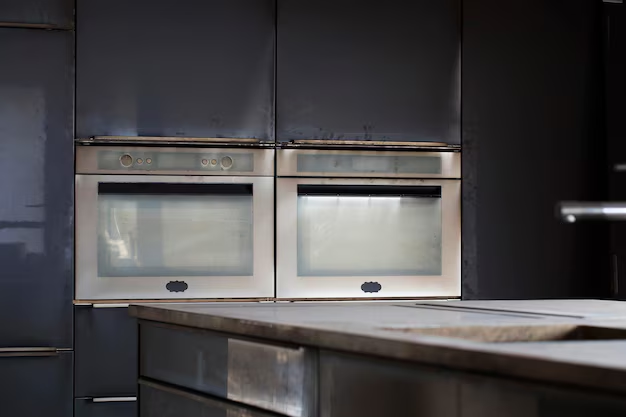Can a Refrigerator Really Explode? Your Guide to Kitchen Safety
Most homeowners seldom think of their trusty kitchen appliances as a potential hazard, but when it comes to refrigerators, there’s a lingering question in the back of some minds: Can a refrigerator explode? Understanding the dynamics behind this possibility is crucial to ensuring your kitchen remains a safe haven for food storage and family gatherings.
⚡ The Mechanics of Refrigeration
Before diving into whether an explosion can occur, it’s essential to grasp how a refrigerator functions. Refrigerators rely on refrigerant gases, such as R600a (isobutane) or R134a (tetrafluoroethane), to circulate within a closed circuit of coils. This gas absorbs heat from the inside of the refrigerator, keeping the interior cool, and releases that heat outside.
The Role of the Compressor
A refrigerator's compressor circulates the refrigerant through the system. Should the compressor malfunction or become clogged, it can lead to excess pressure building up within the coils. However, this is only one potential avenue for complications.
💥 Can Refrigerators Explode?
While the idea is alarming, refrigerator explosions are rare. However, certain conditions can heighten the risk:
- Faulty Wiring: Defective wiring within your refrigerator can cause sparks. If this occurs near a gas leak, it may ignite an explosion.
- Refrigerant Leaks: Although modern refrigerants are less flammable than older counterparts, some like R600a are indeed flammable. Any leak, combined with an ignition source, can be dangerous.
- Obstruction of Air Flow: A blocked ventilation system can cause heat to build up in the compressor, potentially leading to overheating and pressure surges.
- Age and Maintenance: Older models, due to wear and internal degradation, may be more prone to issues causing explosions. Regular maintenance can mitigate these risks.
🔍 Identifying Potential Signs of Trouble
Awareness is the first step in prevention. Here are some signs that your refrigerator might be at risk:
- Unusual Noises: Buzzing, clicking, or excessive humming can indicate that components, like the compressor, are under strain.
- Smell of Gas: A noticeable chemical odor may indicate a refrigerant leak.
- Excessive Heat: If the sides of the refrigerator feel unusually warm, it could indicate a blocked or malfunctioning compressor.
🔧 Preventive Measures and Safety Tips
To alleviate any concerns, employing preventative strategies is key:
- Regular Maintenance: Schedule routine check-ups for your refrigerator to inspect electrical systems and refrigerant levels.
- Proper Placement: Ensure that your appliance has enough space around it to allow for adequate ventilation.
- Self-Check: Regularly inspect cords and seals, and clean coils as part of home maintenance.
🛡️ Top Tips for Refrigerator Safety:
- 🧯 Invest in a Fire Extinguisher: Install in your kitchen to address emergencies promptly.
- 🚫 Avoid Blocking Air Flow: Ensure items aren’t blocking vents inside the refrigerator or placing too many items on top.
- 🔌 Surge Protector: Protect your refrigerator's energy supply with a surge protector.
🛠️ Dealing with Different Refrigerant Types
The safety measures may also vary slightly depending on the type of refrigerant:
R600a (Isobutane)
Isobutane is efficient and environmentally friendly, yet flammable. Ensure no sparks or electrical faults and check periodically for leaks.
R134a (Tetrafluoroethane)
This refrigerant is non-flammable under normal conditions but can be problematic if the compressor system is not well-maintained.
🤷 What to Do If You Suspect a Problem
Should you notice a potential issue with your refrigerator, it’s crucial to act promptly:
- Unplug: Disconnect the refrigerator from power to negate electrical risks.
- Ventilate: Open windows to disperse any collected gases.
- Contact Professionals: Reach out to a certified technician for repairs.
📊 Quick Summary of Key Tips
| Key Tips 📝 | Details |
|---|---|
| 🔍 Regular Inspections | Schedule maintenance checks for wiring and mechanical parts. |
| 🚫 Keep It Clear | Avoid blocking air vents and maintain a clear space around the unit for ventilation. |
| 🧯 Safety Equipment | Have a fire extinguisher in the kitchen and understand its use. |
| ✋ Early Detection | Act on unusual smells or sounds before they escalate into more significant problems. |
| 🚪 Proper Ventilation | Ensure the area around the refrigerator is well ventilated and free from surrounding clutter. |
👁️ Looking for More?
Understanding refrigerator safety plays an integral role in home maintenance, but it’s just one part of appliance care. For a greater peace of mind:
- Educate Family Members: Ensure everyone understands basic electrical and appliance safety.
- Stay Updated: Keep abreast of manufacturer updates or recalls on your appliance model.
So, while the vision of a refrigerator explosion might conjure images of a chaotic kitchen calamity, armed with the right knowledge and preventative measures, such a scenario remains highly unlikely. With consistent care, your refrigerator will stay a steadfast kitchen companion, safeguarding your food and family for years to come.

